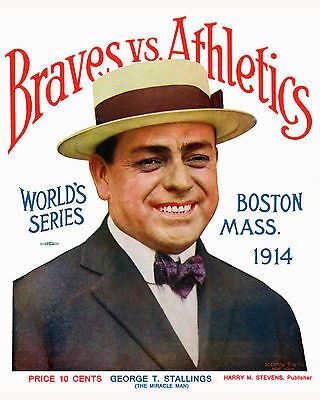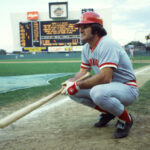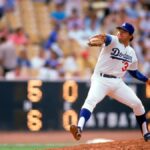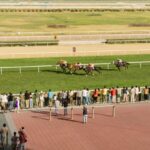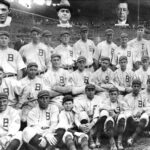The 1914 World Series: The Miracle Braves and the First Sweep
The 1914 World Series is often remembered for its incredible underdog story and the dominance of the Boston Braves, who completed the first-ever sweep in World Series history. The series pitted the Boston Braves, also known as the “Miracle Braves,” against the heavily favored Philadelphia Athletics, a powerhouse team led by legendary manager Connie Mack. The Braves’ victory was a defining moment in baseball history, proving that even the most unlikely teams could rise to the occasion on the sport’s biggest stage.
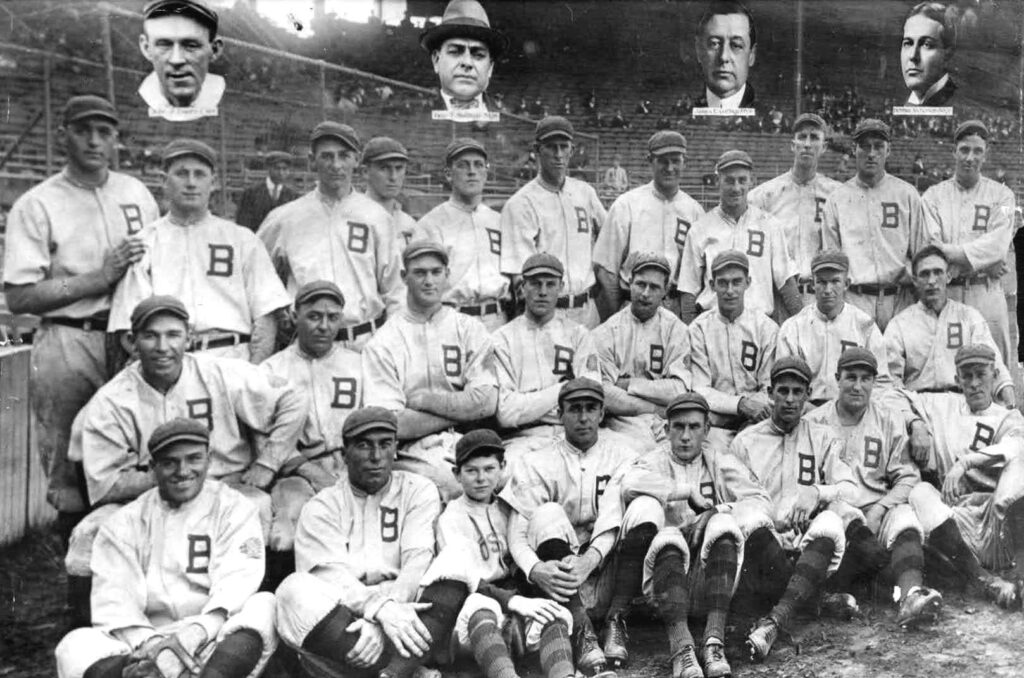
The Teams: A Contrast in Expectations
Heading into the 1914 World Series, the Philadelphia Athletics were the dominant force in baseball. Managed by Connie Mack, the Athletics had won the American League (AL) pennant by a comfortable margin, finishing the season with a 99-53 record. They were a team stacked with talent, boasting Hall of Fame players like pitcher Chief Bender, third baseman Frank “Home Run” Baker, and second baseman Eddie Collins. The Athletics were looking for their fourth World Series title in five years, having won in 1910, 1911, and 1913. Their wealth of experience and superior roster made them the heavy favorites.
In stark contrast, the Boston Braves were the epitome of an underdog. At the start of the 1914 season, the Braves were not considered contenders in the National League (NL). They had finished in fifth place the previous year and were languishing in last place as late as July 4, 1914. However, the team mounted an incredible comeback under the leadership of manager George Stallings. By the end of the regular season, the Braves had surged to the top of the National League, finishing with a record of 94-59 and winning the pennant by 10.5 games. Their remarkable rise earned them the nickname “Miracle Braves,” as they became the first team in MLB history to go from last place in July to first place by the end of the season.
Despite the Braves’ amazing turnaround, most observers still considered the Athletics to be the superior team, and few expected the Braves to put up much of a fight in the World Series.
Game 1: A Surprise Opening
The 1914 World Series began on October 9 at Shibe Park in Philadelphia, home of the Athletics. Boston’s ace, Dick Rudolph, took the mound against Chief Bender, one of the most dominant pitchers of the era. Rudolph had been a key figure in the Braves’ late-season surge, and he carried that momentum into Game 1, holding the powerful Athletics lineup in check.
The Braves stunned the Athletics with a 7-1 victory, with Rudolph pitching a complete game and limiting Philadelphia to just five hits and one unearned run. Boston’s offense, led by Hank Gowdy, came alive, and the Braves’ combination of solid pitching and timely hitting gave them an unexpected win. Gowdy, the Braves’ catcher, set the tone with three hits, including a double and a triple, while the Athletics’ vaunted lineup scored only an unearned run in the second inning.
Game 1 sent shockwaves through the baseball world, as the Braves had not only beaten the heavily favored Athletics but done so convincingly.
Game 2: The Braves Win Dramatic Pitcher’s Duel
Game 2, also played at Shibe Park, saw another pitching duel, this time between the Braves’ Bill James and the Athletics’ Eddie Plank. James, a 22-year-old right-hander who had enjoyed a breakout season in 1914, delivered one of the finest performances of his career. He pitched a two-hit shutout, leading the Braves to a 1-0 victory and a commanding 2-0 lead in the series.
The game was scoreless for eight innings as neither team was able to manage significant offensive threats. With one out in the top of the 10th inning, Charlie Deal doubled to centerfield. Deal then stole third base and following a strikeout of Bill James, scored on a two-out single by Les Mann. James walked two batters in the bottom of the 10th, but the game ended on a double play grounder by Eddie Murphy.
With the series shifting to Boston, the Braves had already gained the upper hand, leaving the Athletics in an unfamiliar position: down 2-0 in the World Series.
Game 3: The Braves Need Extra Innings To Prevail
The series moved to Boston for Game 3, played at Fenway Park because the Braves’ home stadium, the South End Grounds, was too small to accommodate the large crowds expected for the World Series. Boston’s faithful fans packed Fenway, hoping to see their team continue their improbable run.
Lefty Tyler took the mound for the Braves in Game 3 and allowed only two runs through nine innings. However, the Athletics scored twice in the top of the 10th inning on a two-run single by Frank “Home Run” Baker and seemed poised to get back into the series. Hank Gowdy hit a solo home run to lead off the bottom of the 10th inning off Bullet Joe Bush and the Athletics tied the game at 4-4 on a sacrifice fly by Joe Connolly.
Bill James relieved Tyler in the 11th inning and shut down the Athletics in the 11th and 12th frames. Hank Gowdy began the bottom of the 12th with a ground rule double and scored the winning run when Bush misplayed the sacrifice bunt attempt by Herbie Moran making a wild throw to third base that allowed Gowdy to score.
Game 4: The Miracle Braves Complete the Sweep
With a commanding 3-0 lead, the Braves entered Game 4 with a chance to sweep the mighty Athletics and secure their first World Series title. Dick Rudolph once again took the mound for Boston, while Bob Shawkey was given the start for Philadelphia.
Johnny Evers opened the fourth inning with a walk and later scored on a groundout by Charles Schmidt to give the Braves a 1-0 lead. The Athletics answered with a single run in the top of the fifth when Shawkey doubled to score Jack Barry.
Shawkey could not keep the momentum as the Braves scored twice in the bottom of the fifth with Evers driving home both runs with a single. Rudolph continued his masterful pitching over the final four innings as he allowed just one walk and no hits to secure his second win of the series and the improbable sweep for the Braves.
Though he went 0-for-2 with a walk in the final game, Hank Gowdy, finished the series with a .545 batting average, becoming the first player in World Series history to hit over .500 in a multi-game series. His combination of clutch hitting and defensive prowess behind the plate made him the clear MVP of the series.
Dick Rudolph was the pitching star of the series as he won the first and fourth game of the series allowing only an unearned run in the first game and one earned run in the final game. He struck out 15 batters, while walking only four, in his two starts.
The Aftermath and Legacy of the 1914 World Series
The 1914 World Series was not just significant because of the Braves’ unlikely victory—it also marked a turning point in the history of baseball. The Boston Braves’ sweep of the Philadelphia Athletics was the first in World Series history, and it was a humbling defeat for the heavily favored Athletics, who were expected to dominate the series.
The Athletics’ dynasty, which had been one of the most successful in baseball during the early 1910s, quickly unraveled after the 1914 World Series. Following the shocking loss, Connie Mack, the Athletics’ frugal owner and manager, dismantled the team, selling or trading away many of the team’s star players. As a result, the Athletics went from World Series contenders to a last-place team in the American League by 1915. It would take the franchise nearly two decades to return to prominence.
For the Braves, the 1914 World Series remains the high point in the franchise’s early history. Although they struggled in the years following their miraculous run, the “Miracle Braves” of 1914 became a symbol of perseverance and determination in the face of overwhelming odds. The team’s dramatic turnaround from last place in July to World Series champions in October is one of the greatest stories in baseball history.
Key Players and Contributions
While Hank Gowdy was the clear offensive star of the series, the Braves’ pitching staff deserves much of the credit for their success. Dick Rudolph and Bill James were both outstanding, combining to hold the powerful Athletics lineup to just six runs over four games. Rudolph pitched two complete games, winning both, while James allowed only one run in his two appearances.
For the Athletics, the 1914 World Series was a bitter disappointment. Eddie Collins, Frank “Home Run” Baker, and Chief Bender—players who had previously excelled in the postseason—struggled mightily against the Braves’ pitchers. The team’s inability to generate offense was a key factor in their downfall, as they managed to score just six runs in four games.
The Final Word
The 1914 World Series remains one of the most memorable and surprising championships in MLB history. The Boston Braves, a team that had been counted out midway through the season, defied the odds to sweep one of the greatest teams of the era. Their victory stands as a testament to the unpredictable nature of baseball, where even the most improbable outcomes can become reality.
